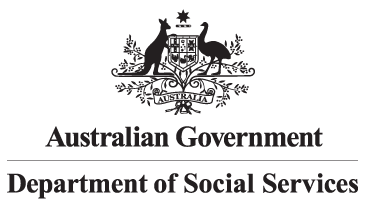In the media
Here is a small snapshot of research using Growing Up in Australia data that has been in the media within the past year.

Active children do better at school. So how do we keep teens in sport?
ABC News, 4 February 2024
Researchers at the University of Sydney analysed the sports participation and academic performance of more than 4200 students from the age of four through to the age of 21 using data from the Longitudinal Study of Australian Children…. “We have shown kids who continue playing sports through their childhood and into adolescence perform better academically,” …the study allowed researchers to compare a child’s performance over time, showing an increase in academic outcomes while a child continued playing sport.
Mary Ward

Thousands of kids were involved in a landmark childhood study. They're now adults themselves
ABC News, 3 January 2024
“Over the past 20 years, researchers have gained valuable insight into everything from the benefits of three-year-old kindergarten to the impacts of drugs, alcohol and violence on a child's development."
Sacha Payne and Tim Callanan
![]()
Australia’s rates of autism should be celebrated- but real-life impact, not diagnosis, should determine NDIS support
The Conversation, 22 November 2023
The Longitudinal Study of Australian Children also shows younger children (born 2003–04) have a higher autism prevalence (4.4%) than older children (2.6%; born between 1999–2000). Yet, younger children had fewer social, emotional and behaviour challenges than older children. These findings tell us we are getting better at identifying children with more subtle traits at earlier ages. This is leading to better outcomes.
Nancy Sadka and Josephine Barbaro

Three in ten older teens have experienced intimate partner violence
The Good Men Project, 18 November 2023
Data from Growing Up in Australia: The Longitudinal Study of Australian Children (LSAC), shows that ‘almost three in ten 18-19 year olds have experienced intimate partner violence in the past year…In the 12 months before being surveyed, 25% of 18-19 year olds experienced emotional abuse, 12% experienced physical violence, and 8% experienced sexual abuse in their intimate relationships. A total of 29% experienced at least one form of intimate partner violence.’
Karlee O’Donnell, Pilar Rioseco, Amanda Vittiglia, Bosco Rowland and Lisa Mundy
![]()
By the time her baby came home from hospital, Kat’s parental leave was gone
Sydney Morning Herald, 5 November 2023
Women in their early 20s who returned home felt more isolated than men the same age who did so, the Australian Institute of Family Studies has found, and they also reported feeling more stressed than young men.
Mary Ward

‘A massive public health problem’: Australian children as young as 10 are hooked on gambling
The Guardian, 1 October 2023
‘Children and young people are not only gambling online. The Growing Up In Australia Longitudinal Study of children found the most common gambling activity for 16- to 17-year-olds was private betting with friends or family, but they also reported betting on sports games, and horse and dog races.’
Melissa Davey and Natasha May

Addressing coercive control nationally and protecting our children
The National Tribune, 22 September 2023
‘Recent research…drawing on data from the Longitudinal Study of Australian Children, found a causal link indicating young people that played simulated gambling games had a 40 percent higher probability of spending real money on gambling as young adults.’
Elise Archer, Attorney General

Young People Whose Parents Receive Welfare Far Less likely to Be Working or Studying
The Good Men Project, 13 September 2023
‘When governments at all levels work effectively with employers and local communities to address entrenched disadvantage, there is a real opportunity to break the cycle, and make a lasting difference to young people and their families,’ Dr Mundy said.
Clement Wong, Brendan Quinn and Lisa Mundy

The link between playing sports and mental health in children
The Good Men Project, 7 September 2023
According to the study, children who internalize their emotions and struggle to interact with their classmates considerably benefit from participating in team sports.
Penny Min

Children with asthma at risk of anxiety
UQ News: University of Queensland News, 5 April 2023
“…the findings revealed 4-year-olds with asthma were more likely to develop anxiety between the ages of 6 and 15 years, compared to non-asthmatic children”.
Diana Garcia Sanchez

Home Media Releases ‘Invisible People’ — Policy Makers Urged to Consider the Needs of 20-Somethings Who Moved Back Home During the Pandemic
The Good Men Project, 11 March 2023
‘We must monitor the long-term implications of lockdowns on these young adults, including the impact on future employment and family dynamics, so that they can be appropriately supported as they move into the next phase of their adult lives.’ (Dr Lisa Mundy- Project Lead Longitudinal Study of Australian Children)
Tracy Evans-Whipp and Jennifer Prattely
![]()
Australians spend millions playing the pokies on their phone but they’ll never win a cent
The Age, 26 February 2023
“There was reliable evidence that engaging in simulated gambling – but especially making some in-game purchases – was associated with experiencing gambling-related problems and being at risk of gambling-related harm ... things like impact on relationships, work and study,” [Rebecca Jenkinson- Australian Gambling Research Centre (AIFS)]
James Lemon

Fears for 'invisible' young people forced home by COVID-19 pandemic and stuck there due to cost of living
ABC News, 2 February 2023
“[The report] found one-in-five young people felt it was difficult or "not beneficial" living with their parents, while one-in-10 said they did not feel supported by their parents and family during those critical first three months of lockdowns”.
Owen Jacques
![]()
Why moving home during COVID caused many women to struggle
Sydney Morning Herald, 1 February 2023
Women in their early 20s who returned home felt more isolated than men the same age who did so, the Australian Institute of Family Studies has found, and they also reported feeling more stressed than young men.

Child researchers find growing link between pandemic screen time and school refusal rates
ABC News, 30 January 2023
We found that for children who have two or more hours of TV a day, two years later they were roughly a third of a year behind their peers in their learning.
Dr Mundy (Project Lead- Longitudinal Study of Australian Children)
![]()
Kids on the autism spectrum experience more bullying. Schools can do something about it
The Conversation, 9 June 2022
The study found children on the autism spectrum are more likely to be bullied at high schools than primary schools (an opposite trend from non-autistic children). It’s possible that in high schools the differences due to autism are more pronounced and noticeable.
Misha Ketchell
Support services
If you are facing life issues, a crisis or an emergency see our list of services that can help [PDF, 167 KB]








